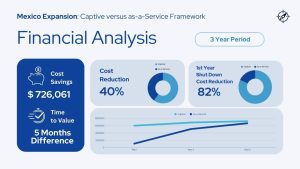
So, your tech company is evaluating opening a GCC office in Mexico for nearshoring. But before you dive in, the question of how to open a business in Mexico arises, as well as what else you should consider regarding business incorporation. Exploring why Mexico for nearshoring could provide valuable insights into your decision-making process
Yes, it has more steps and nuances than one would expect, but the following steps are usually what it takes to do it. Remember, this is just a starting point, and consulting with legal and financial professionals specific to your situation is highly recommended.
Common Setup Steps
- Choose tentative names and check their availability with the Ministry of External Affairs.
- Choose a legal representative in Mexico with Power of Attorney, which will grant them the power to act and sign official documents on behalf of the company.
- Location selection for the company’s official address.
- Choose your business structure depending on your business type and draft your entity’s company bylaws. Evaluate tax implications by company type and finalize Policies and Operating Agreements of the Company.
- Depending on the type of business structure, there might be the need to hire an official translator (Apostille/Perito Traductor) for Foreign Ownership Documents to be valid in Mexico.
- A public notary gathers those involved for signature and legalizes all documentation.
- After legalizing the company’s bylaws, register the business with the Public Registry of Property and Commerce in Mexico.
Startup Steps
- Proof of Local Company Address.
- Apply for a corporate tax ID Number, as it is required for invoice generation, official financial documents, and tax filing. This step can take longer as it is dependent on the availability of appointments of the Mexico Tax Administration System (SAT).
- After obtaining a corporate tax ID, the company can open a corporate bank account. Each bank has its requisites and benefits, and local guidance is essential.
- Deposit Initial Investment.
Pro Tips
- If hiring a Legal and Tax Advisory Firm, it has a long track record of working with foreign companies in your industry. Policies and regulations change by industry and when involving foreign nationals.
- Mexican government websites and business associations offer valuable information but be aware that local laws in Mexico change often.
- Define first the entry strategy to Mexico before incorporating locally, if possible test assumptions first before committing to a large investment. The company will require local systems and administrative staff to operate, including registry with the Mexican Social Security Institute
- Be mindful of cultural differences and seek local expertise.
In Conclusion
Incorporating in Mexico requires careful planning and compliance with regulations. By following these steps, seeking professional guidance, and embracing the cultural nuances, your tech company can successfully establish itself in the Mexican market and bridge the border to growth and success!
Everscale Group can help you register/form a business in Mexico when ready, providing end-to-end services for expanding into the region. IT Recruiting, Payroll Services, Business Incorporation, Facilities Management, Accounting & Tax, Relocation and Procurement.



